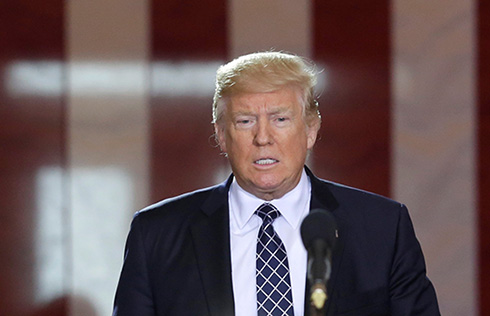US immigration bill gets Senate boost
WASHINGTON - Supporters of US immigration reform are hoping that the smooth and drama-free passage of their legislation through a Senate committee - a departure from almost everything that has happened in Congress over the past four years - will boost the likelihood of the bill winning full Senate approval.
Even Senator Charles Grassley of Iowa, the senior Republican on the Judiciary Committee who voted against the immigration bill on Tuesday, told Reuters TV that the "very fair" debate by the panel "does improve its chances."
But a tentative deal on a companion bill in the Republican-controlled House of Representatives was in danger of unraveling on Wednesday. Partisanship raged behind closed doors in the House, where a group of eight Republicans and Democrats were trying to save a tentative deal they announced last Thursday.
The main sticking point, according to congressional aides and immigration reform advocates, was over prohibitions on federal healthcare for 11 million undocumented immigrants as they transition to legal resident and then permanent resident status under the legislation.
The Senate bill will go to the floor in June, after a Memorial Day holiday recess. The Senate Judiciary Committee voted 13-5 late on Tuesday with support from three Republicans to approve the biggest changes in immigration policy in a generation, including putting 11 million illegal residents on a path to citizenship.
Bipartisan spirit may have flourished in the Senate committee for several reasons.
The debate was never choked off, giving opponents full opportunity to air their grievances and present their amendments. Polls show strong support throughout the United States for comprehensive immigration reform.
And the committee included two Republican members of the "Gang of Eight" that drafted the legislation, with Republicans inspired in part by the drubbing their 2012 presidential contender, Mitt Romney, took from Hispanics who voted overwhelmingly for President Barack Obama.
The two committee Republicans teamed up with Democrats to fend off amendments to significantly weaken the bill's aims and give the legislation a bipartisan banner.
The Judiciary Committee's five long days of open meetings to debate and amend the measure were a rare example of bipartisan cooperation in a normally deadlocked and acrimonious Congress, which, apart from deficit-reduction bills, has not enacted anything of comparable scope since the 2010 mid-term elections, when Republicans won control of the US House.
With his handling of the bill, committee Chairman Patrick Leahy broke the string of secret, high-level negotiations that have been the hallmark of all the major budget and tax bills preoccupying Congress since 2011.
"I think the more open and transparent the process the better," said Democratic Senator Mary Landrieu of Louisiana. She added, "It makes senators feel like...they've expressed their views. It will cut down on the partisanship, hopefully."
Angela Kelley, an immigration expert at the liberal Center for American Progress, said that the bipartisan comity struck in the Senate Judiciary Committee "matters a lot" for the bill's prospects before the full Senate.
"In some ways, the lack of drama is really different from when it (immigration legislation) was marked up in committee in 2006 and in 2007 when so much of that negotiation was happening behind closed doors. It left just such a bad taste in people's mouths that it (the bill) didn't have the juice it needed to get off the floor," Kelley said.
But the bipartisan spirit will go only so far, as the trouble among House members trying to work out a bill was demonstrating.
In addition to discord over healthcare, there also were disagreements over the future enforcement of border provisions and other security programs, such as the "E-verify" that employers will use to ensure they are hiring legal immigrants.
Republican Representative Raul Labrador of Idaho, one of the House negotiators, told reporters there is a Thursday deadline for working out an agreement among the eight lawmakers on healthcare provisions of their long-sought immigration bill.
At issue is whether newly legalized immigrants, barred from getting any government help in buying health insurance, will be able to afford to pay for their own policies.
Some Democrats fear that without any health insurance, these people could face deportation if they are bankrupted by huge medical bills. That is because at various points, they would have to demonstrate economic independence in order to maintain their legal status.
House Democratic leaders, according to congressional sources, were mulling whether any bipartisan House bill ought to be unveiled. Instead, they are wondering if there might be a better outcome for President Barack Obama and his fellow Democrats if the House simply was presented with a Senate-passed bill.
"If the Senate passes a bill...that would reflect a pretty broad, bipartisan support of that bill, and I would think that that would be a good basis for our discussion here," Representative Steny Hoyer, the second-ranking House Democrat, told reporters on Tuesday.
Several House Republicans have warned that the Senate's bill will not pass the House.
If House negotiations do break down it is unclear what would happen next. At least one Republican in the group has threatened to abandon the talks and introduce his own bill. Meanwhile, House Judiciary Committee Chairman has said he might advance narrow, individual bills that Democrats say are an inadequate substitute for comprehensive changes to US law. ? ?
IMPORTANCE OF BIPARTISANSHIP
Senate passage is by no means assured.
Senator Landrieu, who chairs the Senate Small Business Committee, said she is looking for better visa provisions to help small businesses hire foreigners. In a hallway interview with Reuters she also said she is inclined to support comprehensive immigration reform, but that it depends on what further changes are made to the bill.
"At some point, you've got to close the deal but we're not anywhere near closing that deal. We've got to go through a process on the floor," Landrieu said.
Another Democrat who is uncertain about the bill, Senator Jon Tester of Montana, told reporters that he will weigh several factors, including the bill's provisions for "securing the border; English (language requirements) are part of the equation; whether the path to citizenship is realistic and not a gift of amnesty."
Even with a strong, bipartisan vote for passage in the Senate next month, Republicans who control House say they will still want to chart their own course on immigration.
"When did they (senators) get elected to the House? Are they here? I missed when they were sworn into the House of Representatives," said the Puerto Rican-born Labrador sarcastically.

























